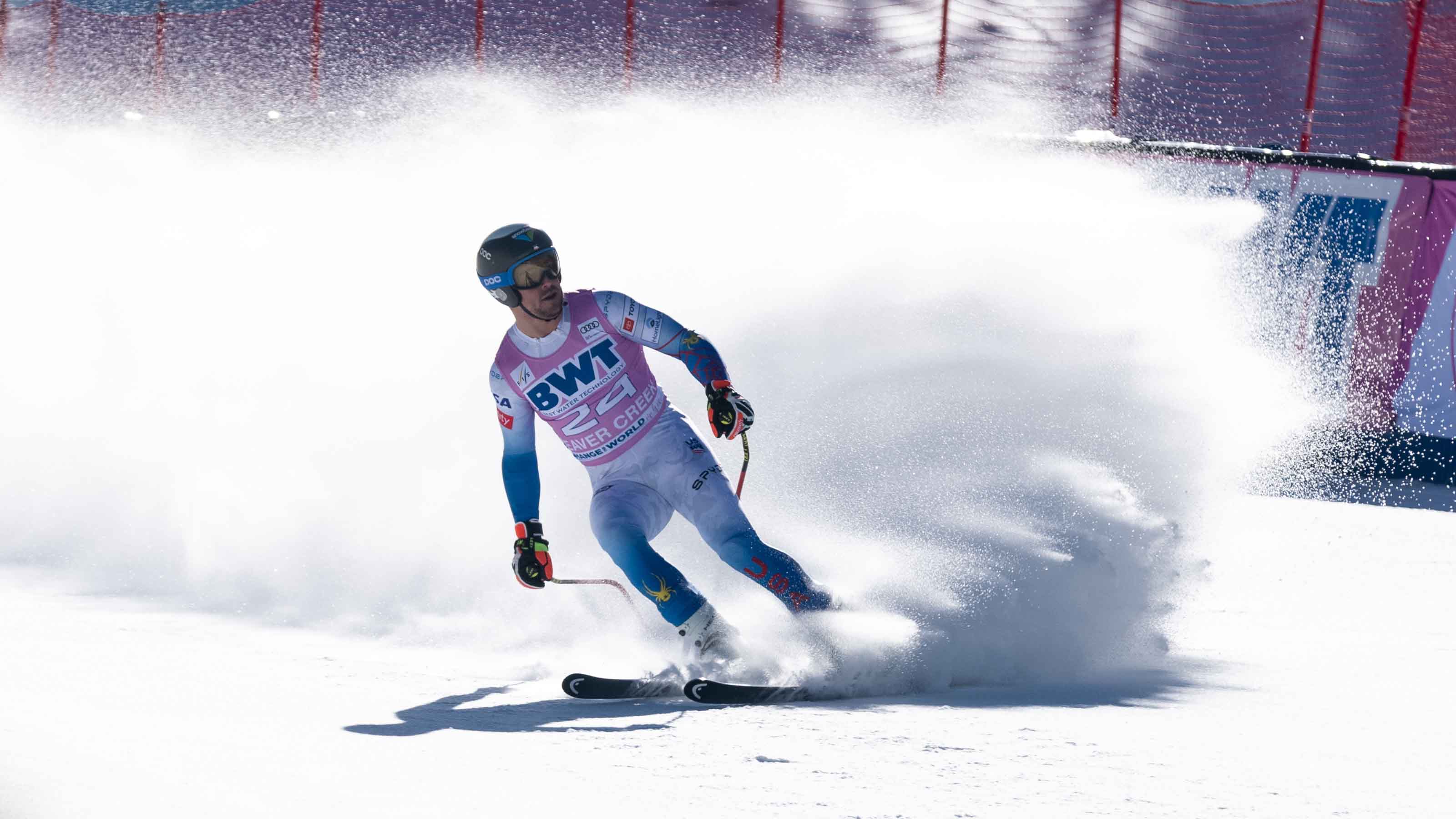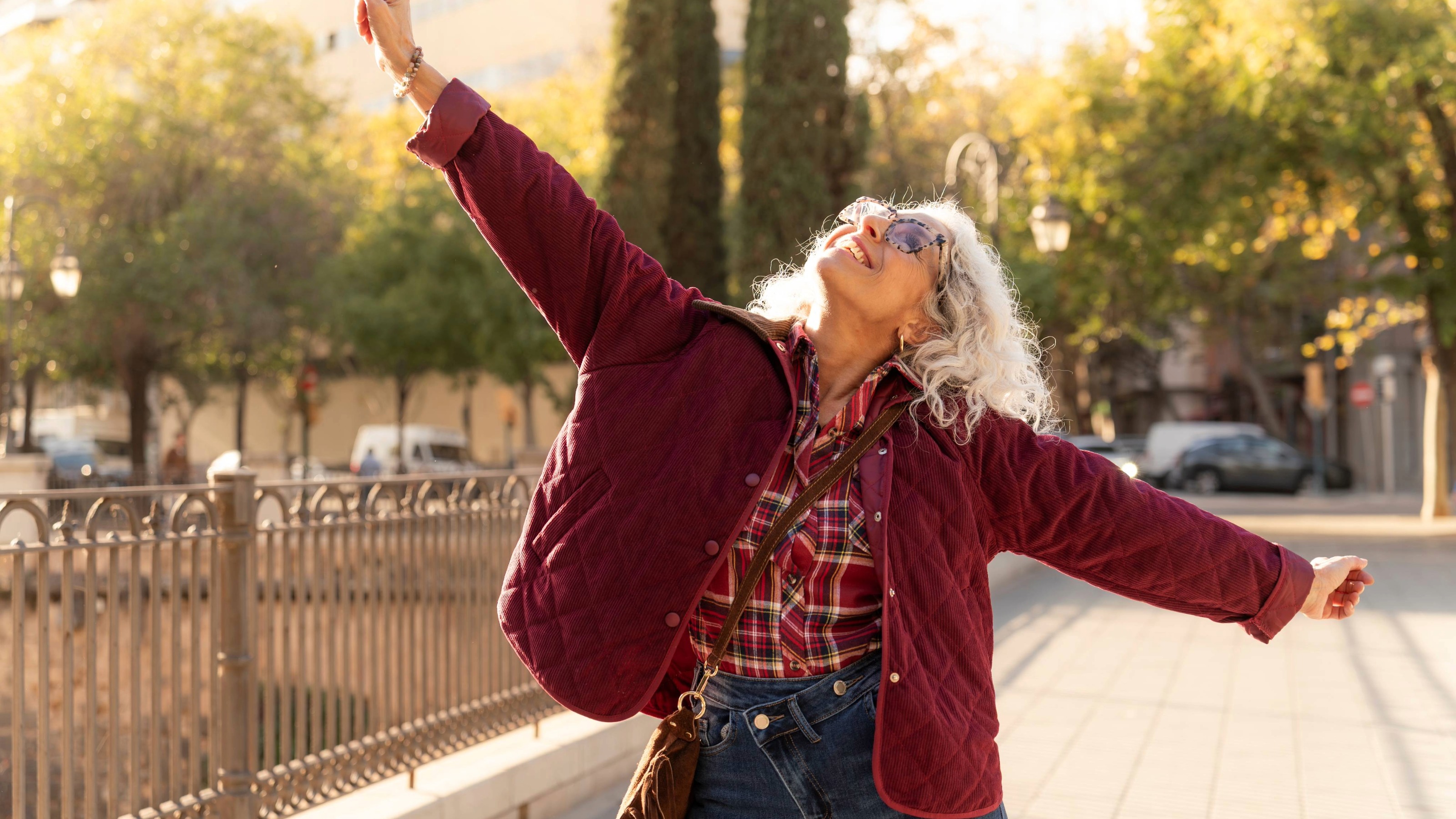Alpine Skier Takes a Third Run at the Winter Olympics
This downhill racer has been on the U.S. ski team since he was 19.


Profit and prosper with the best of Kiplinger's advice on investing, taxes, retirement, personal finance and much more. Delivered daily. Enter your email in the box and click Sign Me Up.
You are now subscribed
Your newsletter sign-up was successful
Want to add more newsletters?

Delivered daily
Kiplinger Today
Profit and prosper with the best of Kiplinger's advice on investing, taxes, retirement, personal finance and much more delivered daily. Smart money moves start here.

Sent five days a week
Kiplinger A Step Ahead
Get practical help to make better financial decisions in your everyday life, from spending to savings on top deals.

Delivered daily
Kiplinger Closing Bell
Get today's biggest financial and investing headlines delivered to your inbox every day the U.S. stock market is open.

Sent twice a week
Kiplinger Adviser Intel
Financial pros across the country share best practices and fresh tactics to preserve and grow your wealth.

Delivered weekly
Kiplinger Tax Tips
Trim your federal and state tax bills with practical tax-planning and tax-cutting strategies.

Sent twice a week
Kiplinger Retirement Tips
Your twice-a-week guide to planning and enjoying a financially secure and richly rewarding retirement

Sent bimonthly.
Kiplinger Adviser Angle
Insights for advisers, wealth managers and other financial professionals.

Sent twice a week
Kiplinger Investing Weekly
Your twice-a-week roundup of promising stocks, funds, companies and industries you should consider, ones you should avoid, and why.

Sent weekly for six weeks
Kiplinger Invest for Retirement
Your step-by-step six-part series on how to invest for retirement, from devising a successful strategy to exactly which investments to choose.
Who: Jared Goldberg, age 30
What: Olympic alpine skier
Where: Salt Lake City
From just $107.88 $24.99 for Kiplinger Personal Finance
Become a smarter, better informed investor. Subscribe from just $107.88 $24.99, plus get up to 4 Special Issues

Sign up for Kiplinger’s Free Newsletters
Profit and prosper with the best of expert advice on investing, taxes, retirement, personal finance and more - straight to your e-mail.
Profit and prosper with the best of expert advice - straight to your e-mail.
You’re headed for your third Winter Olympics. In which events will you compete in Beijing?
They had not decided who will be on the teams as of early January, but I’m preparing for the downhill and super-G races.
How did you become a world-class skier?
My family and I moved to Salt Lake City from Boston when I was 4 years old. I spent a lot of time skiing at Snowbird Mountain Resort. It was a really cool upbringing because I got to spend my time on a ski team that was like a big family. I went to high school in Salt Lake, and I was able to work it out with my teachers that I would leave for weeks at a time. They fully supported me; I just told them I had a dream that I would go to the Olympics someday. And then when I was 19, I made the U.S. ski team. At 22, I was the youngest member of the Sochi Olympics U.S. men’s alpine team.
What’s life like for a professional skier?
It’s a 6 a.m. to 10 p.m. job with a lot of traveling. We’re on the road about five and a half months of the year, if not more. It’s really cool because we get to see the world and ski on different mountains all over the world. We’re working hard and strength training when we’re on the road. These days, it’s hard to work out in public gyms, so in Europe we’ve been carrying around a whole set of weights and equipment. We have to constantly exercise and do physical therapy. We also watch video when we’re done with training.
What COVID protocols are you following for the Olympics?
Right now, we’re in our downhill team bubble. We’re almost a bubble within a bubble, actually, because we also limit our contact with the other guys on the U.S. ski team. And when we’re out in public, we’re not able to do as many autograph signings, and family members aren’t even allowed to stay with us at the races this year. That has been the protocol for basically the whole year. If we’re around other people, we have to wear a mask—sometimes even within our own meetings with our downhill team.
You need to be vaccinated to go, and on our team, you need to also have a booster. There’s going to be a lot of testing before we fly and when we get there. The workers are going to be wearing hazmat suits on the plane, I’ve been told.
How do you support yourself?
I have sponsorships with Snowbird Mountain resorts, and I have equipment sponsors. My skis, my helmet, my goggles, my Spyder outerwear, those brands are my other source of income. There’s also prize money. You get paid for your position, and you get points for your positions as well. If you’re in the top 30, you get World Cup points—100 points for first place all the way down to one point for 30th place. I make a little bit of money on Cameo, too. I do shoutouts, happy birthdays, give people advice and things like that.
I also dabble with cryptocurrencies for fun. I started investing in crypto about four years ago. A couple of buddies on the team and I started playing around with it, not with big numbers or anything. It has just been kind of fun fooling around and learning more about it.
What are your thoughts on the political situation with China now?
I think that it’s a good call to not pull the athletes out of the competitions, because we’d give up a lot of medals. We don’t want to make it easy for the other countries.
Profit and prosper with the best of Kiplinger's advice on investing, taxes, retirement, personal finance and much more. Delivered daily. Enter your email in the box and click Sign Me Up.

Emma Patch joined Kiplinger in 2020. She previously interned for Kiplinger's Retirement Report and before that, for a boutique investment firm in New York City. She served as editor-at-large and features editor for Middlebury College's student newspaper, The Campus. She specializes in travel, student debt and a number of other personal finance topics. Born in London, Emma grew up in Connecticut and now lives in Washington, D.C.
-
 Want to Divorce the IRS? This is How to Go About It (Legally)
Want to Divorce the IRS? This is How to Go About It (Legally)With some careful planning focused on the standard deduction, retirees who have large sums in tax-deferred accounts can avoid unpleasant tax bills and even part ways with the IRS for good.
-
 9 Ways the Wealthy Waste Thousands in Taxes — And 9 Remedies
9 Ways the Wealthy Waste Thousands in Taxes — And 9 RemediesThe tax code contains plenty of legitimate ways for the wealthy and business owners to cut taxes. Use this checklist to minimize taxes and stay compliant.
-
 Farmers Brace for Another Rough Year
Farmers Brace for Another Rough YearThe Kiplinger Letter The agriculture sector has been plagued by low commodity prices and is facing an uncertain trade outlook.
-
 9 Types of Insurance You Probably Don't Need
9 Types of Insurance You Probably Don't NeedFinancial Planning If you're paying for these types of insurance, you might be wasting your money. Here's what you need to know.
-
 Why It's Worth Booking a Winter Vacation
Why It's Worth Booking a Winter VacationTravel Smart In the early months of the year, travel demand dips — and so do prices.
-
 5 Ways to Save on a Trip to the 2026 Olympics in Italy
5 Ways to Save on a Trip to the 2026 Olympics in ItalyA guide to going to the Milan-Cortina 2026 Winter Olympics without breaking the bank.
-
 The Best (and Worst) Airlines for Flight Delays and Cancellations
The Best (and Worst) Airlines for Flight Delays and CancellationsWhich airlines should you book and which should you avoid if you want to make it to your destination on time?
-
 Four Luxury Spa Resorts for Well-Heeled Travelers
Four Luxury Spa Resorts for Well-Heeled TravelersWe hand-picked these U.S. luxury spa resorts for their serenity, amenities and dedication to the comfort of older travelers.
-
 Child-Free Cruises Perfect For Your Retirement Celebration
Child-Free Cruises Perfect For Your Retirement CelebrationHow to find a bespoke ocean or river vacation for adults. Many of these options are smaller, charming river cruises, expeditions, or niche experiences.
-
 Noctourism: The New Travel Trend For Your Next Trip
Noctourism: The New Travel Trend For Your Next Trip"Noctourism" is a new trend of building travel and vacations around events and plans that take place at night. Take a look at some inspiring noctourism ideas.
-
 My Husband and I Retired at 67 With $3.2 Million, But He's Frugal About Travel. How Can I Convince Him to Loosen Up?
My Husband and I Retired at 67 With $3.2 Million, But He's Frugal About Travel. How Can I Convince Him to Loosen Up?We asked financial planning experts for advice.